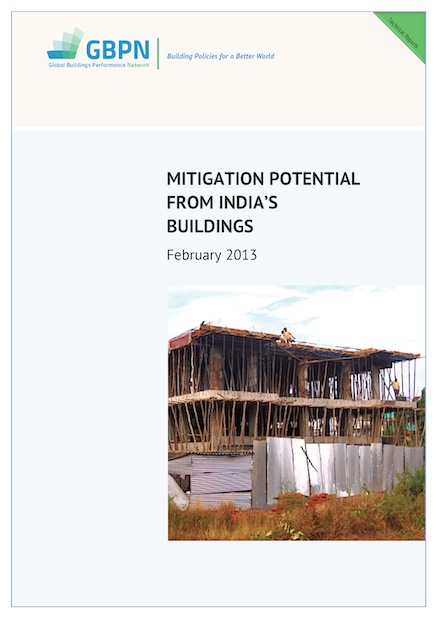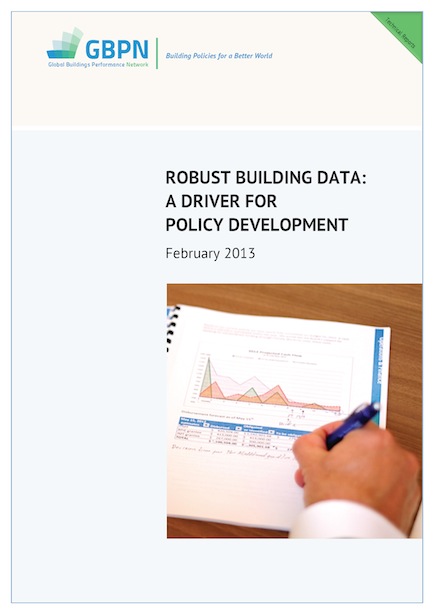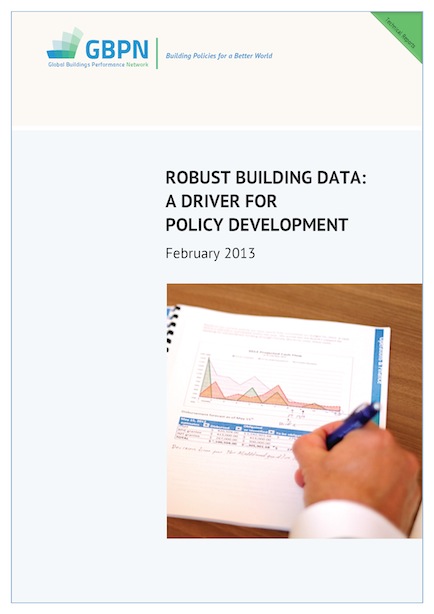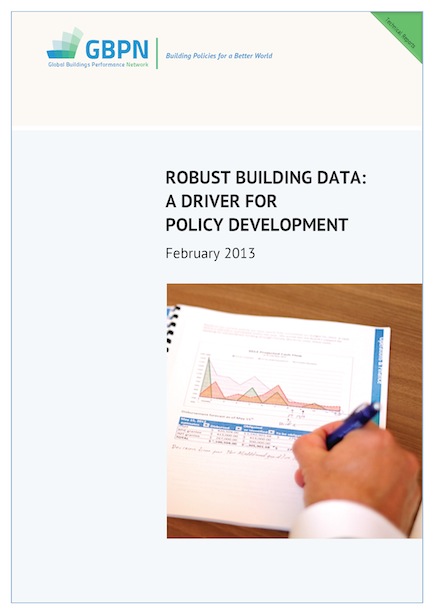印度建筑的减排潜力
 可靠证据表明,至2050年印度建筑领域会产生巨幅能源增长,基于此估测,本报告分析了印度目前建筑节能减排的政策框架及其节能潜力。
可靠证据表明,至2050年印度建筑领域会产生巨幅能源增长,基于此估测,本报告分析了印度目前建筑节能减排的政策框架及其节能潜力。
24 result(s) found
 可靠证据表明,至2050年印度建筑领域会产生巨幅能源增长,基于此估测,本报告分析了印度目前建筑节能减排的政策框架及其节能潜力。
可靠证据表明,至2050年印度建筑领域会产生巨幅能源增长,基于此估测,本报告分析了印度目前建筑节能减排的政策框架及其节能潜力。
 本报告就四个地区数据质量和数据的可利用性问题进行了分析,同时也提醒了我们需要完成多少工作才能建成一个强大而全面的建筑数据库,并提出了实现这个数据库的可行性建议。
本报告就四个地区数据质量和数据的可利用性问题进行了分析,同时也提醒了我们需要完成多少工作才能建成一个强大而全面的建筑数据库,并提出了实现这个数据库的可行性建议。
 本报告就四个地区数据质量和数据的可利用性问题进行了分析,同时也提醒了我们需要完成多少工作才能建成一个强大而全面的建筑数据库,并提出了实现这个数据库的可行性建议。
本报告就四个地区数据质量和数据的可利用性问题进行了分析,同时也提醒了我们需要完成多少工作才能建成一个强大而全面的建筑数据库,并提出了实现这个数据库的可行性建议。
 Data Annex
Data Annex
Discover where things stand regarding building energy data quality and availability in our four regions, this report reminds us of how far we have to go before a robust and comprehensive set of building data is in place and provides some recommendations of how we can get there.
 The Economist Intelligence Unit (EIU) report "Achieving scale in energy-efficient buildings in India: A view from the construction and real estate sectors" commissioned by the GBPN explains the challenges and opportunities of investing in energy efficiency in buildings in India.
The Economist Intelligence Unit (EIU) report "Achieving scale in energy-efficient buildings in India: A view from the construction and real estate sectors" commissioned by the GBPN explains the challenges and opportunities of investing in energy efficiency in buildings in India.
 A report from the Economist Intelligence Unit (EIU), commissioned by the GBPN finds that while India’s commercial building sector has blazed the energy-effiency trail in the building sector, achieving significant scale will depend on efficiency measures becoming standard practice in the commercial middle market, retrofit and, particularly, the residential building segment.
A report from the Economist Intelligence Unit (EIU), commissioned by the GBPN finds that while India’s commercial building sector has blazed the energy-effiency trail in the building sector, achieving significant scale will depend on efficiency measures becoming standard practice in the commercial middle market, retrofit and, particularly, the residential building segment.
 Executive Summary
Executive Summary
GBPN conducted a study on the factors affecting the use of ESCO models for the retrofit of existing buildings in China, identifying current barriers to the development of the Chinese ESCO market, while also researching best-practice examples of ESCOs globally and investigating the feasibility of introducing those examples to China.
It is now established that energy use in buildings is a significant source of global greenhouse gas emissions and that abatement by the building sector can provide significant social, economic and environmental benefits. This paper examines the application of socio-technical transition theory to the building sector with Australian energy policy as a case study. The relatively high level of local building construction offers significant opportunities for market transition with appropriate policy settings so this national case has international implications.
Building energy efficiency is an important strategy for reducing greenhouse gas emissions globally. In fact, 55 countries have included building energy efficiency in their Nationally Determined Contributions (NDCs) under the Paris Agreement. This research uses building energy code implementation in six cities across different continents as case studies to assess what it may take for countries to implement the ambitions of their energy efficiency goals.
This paper introduces the major state-level regulations and policies for improving energy efficiency in buildings. The purpose of the review is to discuss the challenges and issues in policy implementation and the latest trend in adopting innovative instruments. The implementation of customer efficiency programs increasingly incorporates non-price instruments to encourage participation and deep savings. States pay attention to not only code adoption and update but also compliance and evaluation.
There is now widespread recognition in the international community that the commitments made by national governments under the Paris Climate Agreement in 2015 cannot be achieved without concerted action by cities. Fortunately, many mayors have shown strong commitment to tackling climate change and a willingness to collaborate to achieve this goal.
This project, “International Review of Residential Building Energy Efficiency Rating Schemes”, is the fifth project in a series of work conducted through the Building Energy Efficiency Task Group (BEET), under the International Partnership for Energy Efficiency Cooperation (IPEEC). This project report presents key governance and administrative considerations in the design of energy efficiency rating schemes, available information on the cost-effectiveness and market impact of rating schemes, barriers to uptake of schemes and lessons learned from the implementation of schemes.
The main aim of this report is to contribute to the exchange of good practices and to support EU MS by providing potential ideas for the elaboration of long-term renovation plans. The report compiles renovation requirements as well as financial instruments, support programmes and market mechanisms for building renovation in a number of countries and regions. While the main focus of the report is on selected EU MS, a few global examples are also presented.
The contribution of buildings to climate change has become widely acknowledged. On 3 December 2015, the United Nations Environment Programme (UNEP) held the first ‘buildings day’ at COP 21 (the UN Climate Change Conference) devoted to the decarbonization of the building stock. There are several forms of negative contributions that buildings make to climate change, but high on the list are embodied and operational energy demands, which largely depend on fossil fuels and result in greenhouse gas emissions.
The Dutch Government stimulates the application of energy efficiency measures to reduce the energy requirements of buildings, which are responsible for about 20% of the Dutch CO2 emissions. For our assessment, we followed a qualitative approach, due to a lack of data. We reviewed the mix of policy instruments and used stakeholder surveys and interviews. We found that energy use is not very likely to decline fast enough to achieve the Dutch policy targets for 2020. For new buildings, the policy mix works well, but its contribution to the policy targets is limited.
Energy Poverty (EP) is the inability to attain a socially and materially necessitated level of domestic energy services. In the EU this occurs primarily due to low incomes, poor energy performance of buildings and high energy costs. The impacts of EP range from impaired social lives to unhealthy living conditions, with further consequences in the physical and mental health of energy poor individuals. Member states have been assigned by the EU with the responsibility of dealing with EP within their own territories.
The EU and Australia have instituted significant new public policies to promote energy efficiency in the “built environment.” Many of these public policies were motivated by the same concerns that led to the pioneering voluntary initiatives of Green Building Councils (especially the LEED design certification program) and the U.S. Department of Energy’s ENERGY STAR system for buildings. However, policy initiatives on both continents are relatively new, have been recently modified, and are yet to be finalized.